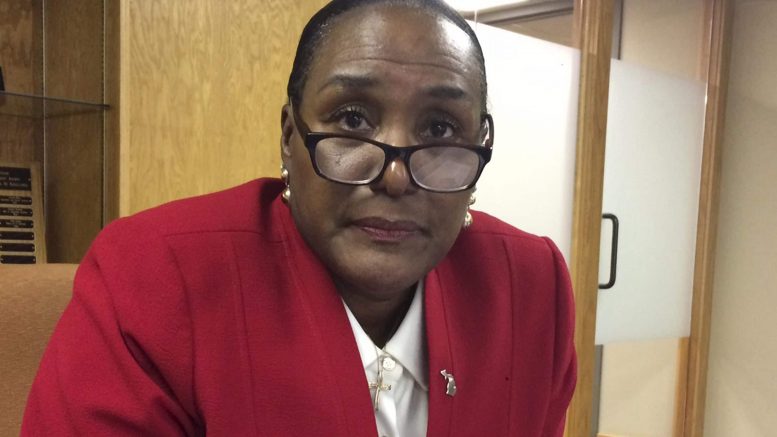Lansing — The Michigan Unemployment Insurance Agency on Thursday agreed to a series of broad policy reforms as it settled a federal lawsuit stemming from the state’s past reliance on an automated computer system that made more than 20,000 false fraud claims against residents over a nearly two-year span.
U.S. District Court Judge Robert H. Cleland signed an order dismissing the case after the state reached an agreement with attorneys representing several Michigan residents who had been wrongly accused of unemployment fraud, along with the Sugar Law Center and the United Auto Workers union.
The settlement requires the agency to change the way it handles fraud cases but does not award monetary damages to plaintiffs, beyond mandatory refunds of fines and penalties levied for false fraud determinations. A separate class-action suit seeking additional financial compensation remains active in state court.
David Blanchard, lead attorney in the federal case, called the settlement agreement a “huge” victory for those accused of unemployment fraud who will “get due process finally” and suggested it is another sign the state is getting serious about fixing a system it initially denied had problems.
“It’s really meaningful for the tends of thousands of Michiganders who were caught up in this stystem, but also for anyone who is going to find themselves at one point or another in need of this kind of basic safety net and doesn’t want to be treated like a criminal,” Blanchard said.
The agreement comes as the state unemployment agency continues to review fraud determinations made between October 2013 and August 2015. The state reversed computer-based determinations in 20,965 of 22,427 cases during an initial review and has so far refunded claimants $5.4 million.
For any other redeterminations the agency makes on cases from that period, the agreement stipulates it must provide claimants with a written notice of their appeal rights. In the case of reversals, “funds garnished or otherwise collected shall be promptly returned within 30 days of a new (re)determination.”
The agreement also requires the state to make various changes in the way it handles fraud cases moving forward, including a heavy reliance on human review, one of several ordered changes the agency says it has already made.
The agency must “take reasonable actions” to ensure investigators gather all relevant evidence in potential fraud cases and must allow claimants an opportunity to be heard, presented with written notice by mail and given an opportunity to present evidence of their own.
Wanda Stokes, director of the Talent Investment Agency that oversees the unemployment agency, said the state is happy to bring the case to a close.
“It’s important to note that this agreement reflects many of the reforms and changes that this agency has set in place since 2015,” she said in a statement.
“Our focus remains on our customers, and improving our service to them as they work through a very difficult time in their lives. We want to make sure people get the benefits to which they are entitled and remain vigilant against fraud, which hurts both residents and employers.”
While the agreement requires reforms, it stipulates that state defendants “admit no wrongdoing” and that any of its policies or procedures have not violated and laws or constitutional provisions.
Jennifer Lord, lead attorney in a separate class-action suit against the state, called the federal settlement “a great step” but said it does not do enough to make whole victims. They include those who may have had to file for bankruptcy because of steep state penalties.
“There are a lot of consequences and damages that are both financial and emotional in nature,” she said.
The federal lawsuit was filed in April 2015 when the state was relying almost exclusively on the Michigan Integrated Data Automated System to make unemployment fraud determinations.
The state has so far reviewed more than 22,000 fraud cases from that period and reversed 93 percent of its original computer-based determinations. The agency says 62 percent of the cases involved unintentional overpayments that did not amount to fraud, while roughly 38 percent of cases never should have been flagged.
The state is now reviewing another 28,000 fraud determinations from the same period that it says involved both computer and staff, a process expected to take six months.
The original federal complaint accused the state of imposing “excessive fines” and violating the due process rights of unemployment claimants by seizing their wages and tax returns without clear evidence that fraud had occurred.
As The Detroit News reported last week, Michigan’s 400 percent fine for unemployment fraud is believed to be harshest penalty in the nation, adding insult to injury for those who were falsely accused. Talent Investment Agency Director Wanda Stokes is encouraging state legislators to revise the law and establish a more “reasonable penalty.”
Unemployment penalty and interest payments are deposited in a state fund that has swelled in recent years, coinciding with the surge in robo-fraud cases. The fund currently has a balance of $169 million, but the agency said a majority of that money – 68 percent – was collected from employers rather than individuals.
Under the agreement reached Thursday, the Unemployment Insurance Agency must “conduct an investigation consistent with prevailing U.S. Department of Labor requirements” before making frauds determination.
Any redeterminations of misrepresentation or fraud will be issued “only after the input and review by agency staff, and after the claimant is informed of the conflicting information and provided an opportunity to respond.”
The state agreed to a separate order Cleland signed last month suspending any additional collection activity against unemployment claimants accused of fraud between Oct. 1, 2013, and Aug. 7, 2015, unless the cases were individually reviewed by a human and affirmed with a new notice to the claimant.
The unemployment agency is asking those who think they were affected to call the state’s new hotline, 1-800-638-6372.
joosting@detroitnews.com
Source: www.detroitnews.com





Be the first to comment on "Michigan Settles Federal Unemployment Fraud Case"